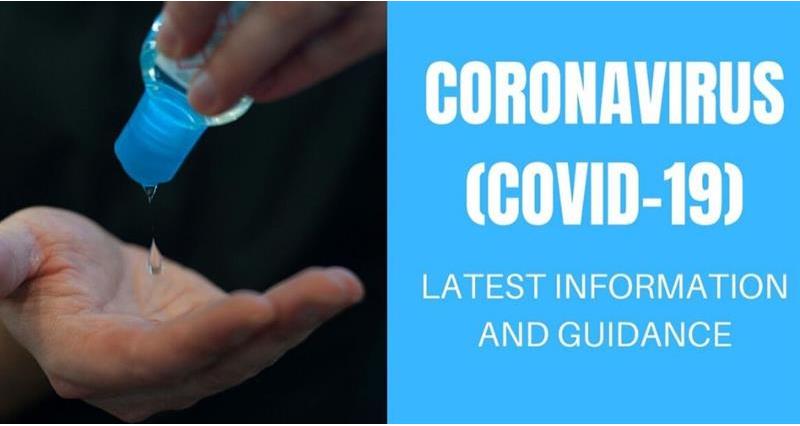In light of the serious implications around Coronavirus, we want to share the latest information and guidance with you.
New rules after 9th November 2020
'Following the two week firebreak lockdown in Wales, Welsh Government has created a new set of rules in order to keep Wales safe.
These include:
- stay out of each other’s homes, except in very limited circumstances
- try to limit how many different people you meet
- maintain social distancing
- wash your hands regularly
- work from home if you can
You can read the full Welsh Government guidance here
Public Health Wales (PHW) has advised you should not leave the house for 14 days if you or someone you live with has either:
- a high temperature
- a new, continuous cough
- loss of smell or taste (anosmia)
- Anosmia is the loss or a change in your normal sense of smell. It can also affect your sense of taste as the two are closely linked.
Anyone can spread the virus:
Do not go to a GP surgery, pharmacy or hospital. You do not need to contact 111 to tell them you're staying at home.
You should only contact 111 if:
- you feel you cannot cope with your symptoms at home
- your condition gets worse
- your symptoms do not get better after 7 days
To reduce the risk of catching or spreading coronavirus, Public Health Wales advises the following:
- wash your hands with soap and water often – do this for at least 20 seconds
- always wash your hands when you get home or into work
- use hand sanitiser gel if soap and water are not available
- cover your mouth and nose with a tissue or your sleeve (not your hands) when you cough or sneeze
- put used tissues in the bin straight away and wash your hands afterwards
- try to avoid close contact with people who are unwell
- do not touch your eyes, nose or mouth if your hands are not clean
It is worth checking the Public Health Wales website regularly to see if the guidance has changed and whether there are any implications for you, your family or your business.
How to deal with self-isolation on farm
Self-isolation may help keep you physically well, but mental wellbeing is important, and a prolonged period of isolation can have a detrimental effect on mental health.
Here are some ideas to help you deal with self-isolation and help keep you mentally well:
- Eat healthily and avoid constant snacking on sugary and salty snacks.
- Exercise regularly and wherever possible get outside for some fresh air even if it has to be just the garden. If you can’t get outside things like bird watching from the window or tending to house plants can help to add variety to routines and keep minds active.
- Establish and keep to a routine to help get things done and give a sense of achievement having done so.
- Avoid looking at a screen all day whether it is for work or pleasure. Too much blue light from screens can be disruptive to sleep and wellbeing.
- Stay connected. Just because you may be self-isolating does not mean that you have no contact with the outside world. Use the phone, email, Facetime or Skype to keep in regular contact with friends and family. Regular social contact will be good for you but will also benefit whoever you are talking to as well. Keep in touch with neighbouring farms so that you can have the opportunity to talk with people who can relate to the situations and issues you may be facing.
- Limit news intake. The World Health Organisation says: “A near-constant stream of news reports about an outbreak can cause anyone to feel anxious or distressed. Limit news updates to certain times and use trusted sites such as the NHS and Gov.uk to get information and guidance on how to cope with coronavirus.”
- Advice from people who understand farmers and farming is available from the Farm Community Network on 03000 111 999.
More information and advice on dealing with self-isolation is available on the NHS website and on the Gov.uk website as well as the Public Health Wales (PHW) website.
Information and advice on mental wellbeing is available from the Mental Health Foundation and from Mind.
Lone working
It is vitally important that you consider your safety when lone working. Please see the NFU guidance for more information.
What help and support can I get?
If you are struggling and would like to talk to someone, you can get in touch with one of the agricultural charities for support.
Call R.A.B.I on 0808 281 9490
Call The DPJ Foundation on 0800 587 4262 or text 07860 048 799
The Farm Community Network
FarmWell is an initiative to help Welsh farmers with their business and personal resilience has been launched today by the Wales Farm Support Group.
FarmWell Wales aims to provide Welsh farmers with the most up-to-date information and details of support services, which can help them and their farm businesses stay strong and resilient through times of change and volatility.
You can find more information here or by visiting the FCN social media on twitter @FCNcharity or on Facebok TheFarmingCommunityNetwork
For more up to date information please visit the Department of Health and Social Care website or the Welsh Government website here
